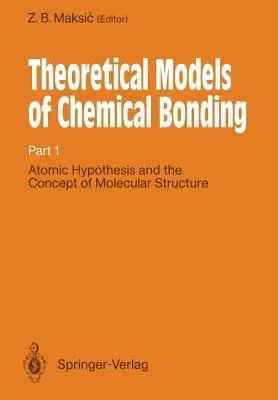"Imagination and shrewd guesswork are powerful instruments for acquiring
scientific knowledge . . . " 1. H. van't Hoff The last decades have
witnessed a rapid growth of quantum chemistry and a tremendous increase
in the number of very accurate ab initio calculations of the electronic
structure of molecules yielding results of admirable accuracy. This
dramatic progress has opened a new stage in the quantum mechanical
description of matter at the molecular level. In the first place, highly
accurate results provide severe tests of the quantum mecha- nics.
Secondly, modern quantitative computational ab initio methods can be
synergetically combined with various experimen- tal techniques thus
enabling precise numerical characterization of molecular properties
better than ever anticipated earlier. However, the role of theory is not
exhausted in disclosing the fundamental laws of Nature and production of
ever increasing sets of data of high accuracy. It has to provide
additionally a means of systematization, recognition of regularities,
and ratio- nalization of the myriads of established facts avoiding in
this way complete chaos. Additional problems are represented by
molecular wavefunctions provided by the modern high-level computational
quantum chemistry methods. They involve, in principle, all the
information on molecular system, but they are so immensely complex that
can not be immediately understood in simple and physically meaningful
terms. Both of these aspects, categorization and interpretation, call
for conceptual models which should be preferably pictorial, transparent,
intuitively appealing and well-founded, being sometimes useful for semi-
quantitative purposes.


